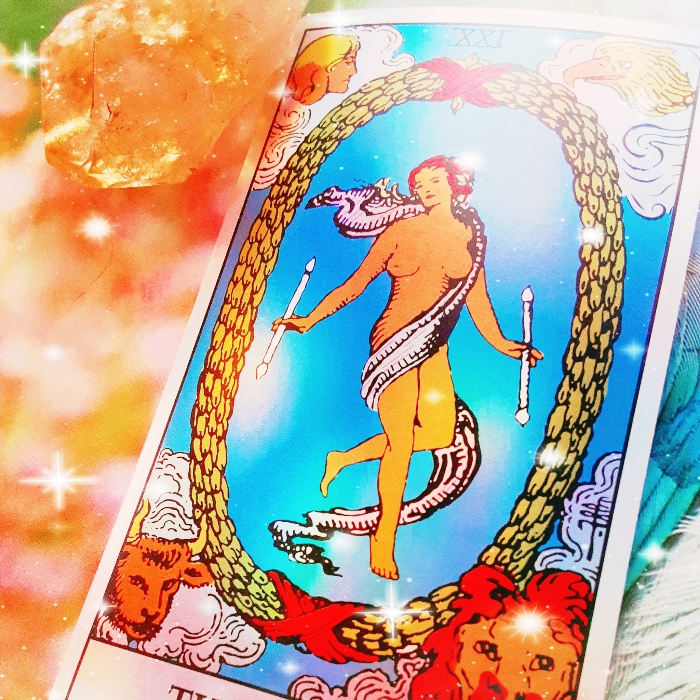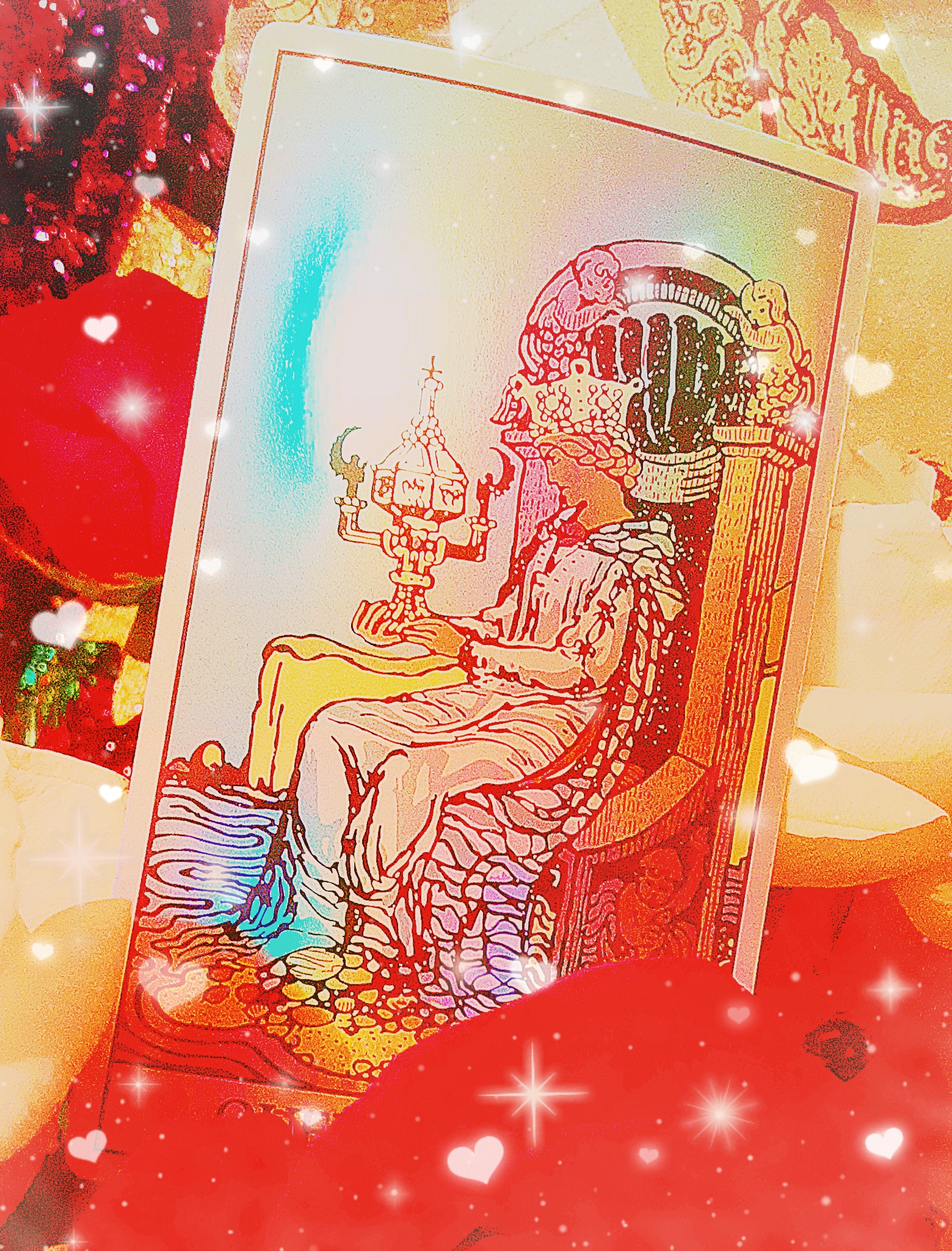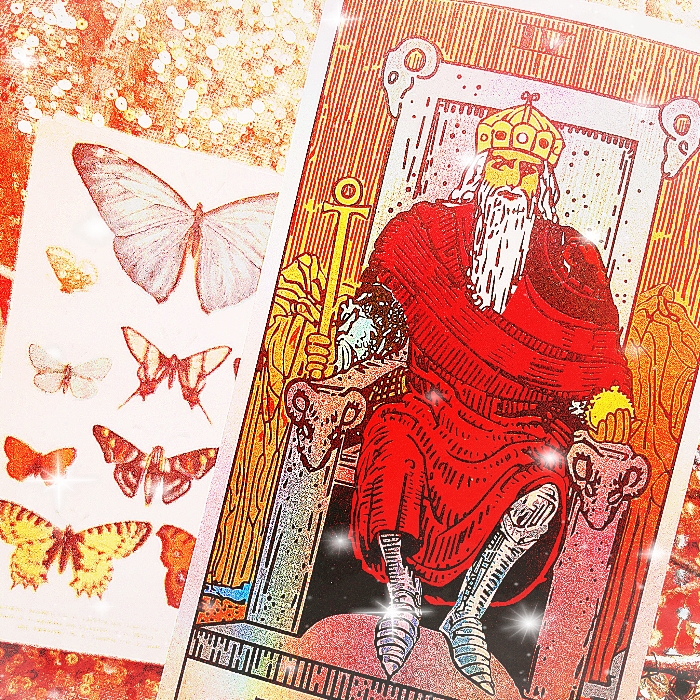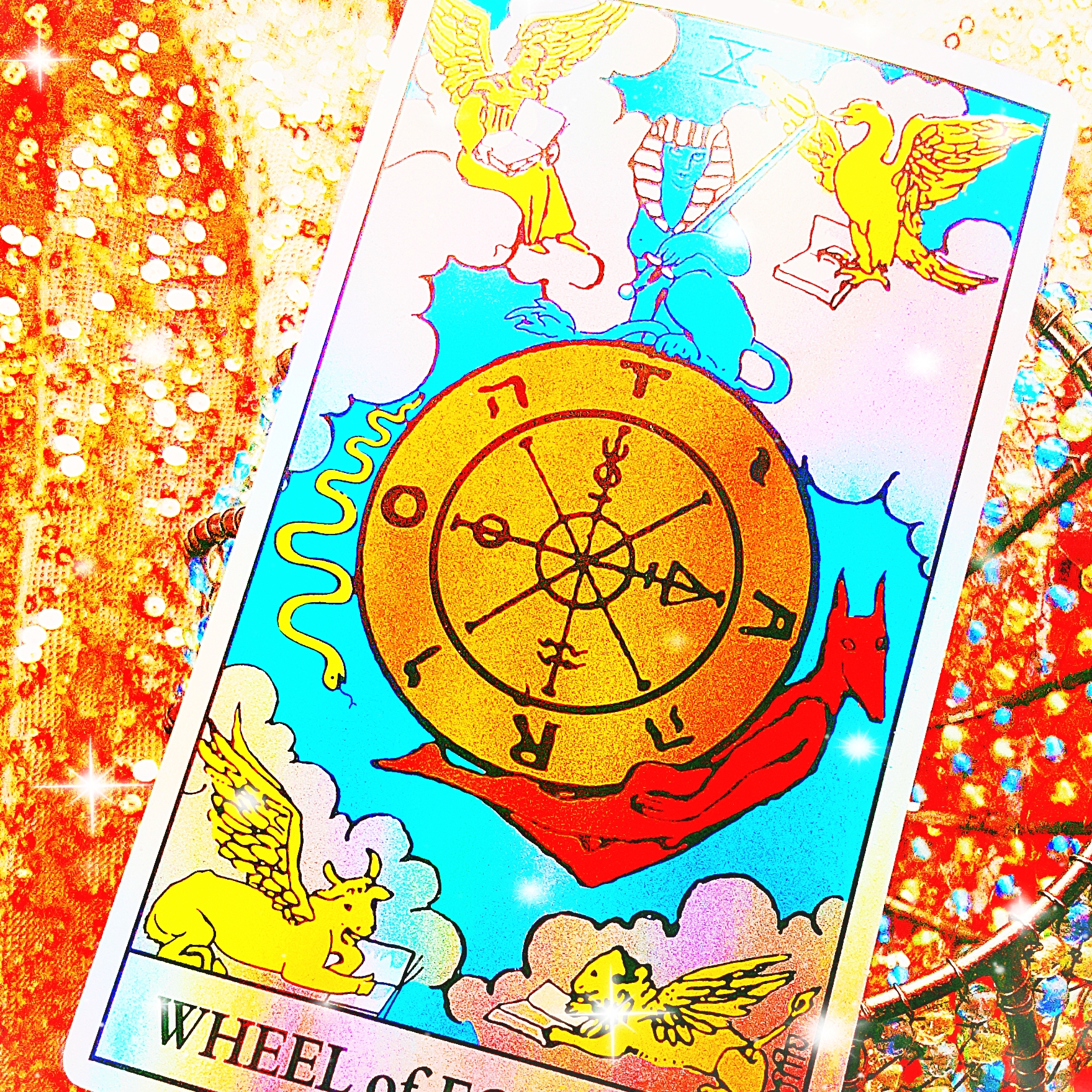A naturally occurring conflict erupts from the basic inequities of society that remain part of the aligned group. Those organizing for their collective rights as workers will still be dealing with misogyny, racism, homophobia, and even classism because we internalize the bias we survive. This is a Five of Wands conflict in that one is not at odds with the goals of the others in the group but with the preexisting and unexamined social prejudices held by individuals. This is a worthy conflict that furthers the lofty goals of equity throughout society and it must be taken head-on with skill, strategy, and resolve.
Category: Michelle Embree

The negative aspects associated with The Hierophant include dogma, spiritual institutionalism, favoring hierarchy over righteousness, and keeping sacred secrets from general knowledge. This card is

This figure could be Odin, who is often known as the god of war and death in Norse cosmology, hanging in the Yggdrasil tree. Odin wanted to know everything so he made a number of sacrifices in order to gain the knowledge and wisdom he desired, including giving up one eye and impaling himself on his own sword. After these acts, he strung himself up in the tree of life for nine days and nine nights over the course of which he learned the secret language of the runes. Through his ordeals, Odin also gained the capacity for both prophecy and shapeshifting. He is often depicted with his two ravens, Thought and Memory (Hugin and Munin), who fly around the world and report back with what they see.

The Seven of Swords is a point of no return. If we read the card as deception, we know lies can not be taken back. Once the lie has been told, it cannot be untold. We might forgive the transgression and move on, but the relationship has shifted and is no longer the relationship in which the lie took place.

The concept of Judgement has a fairly negative or frightening ring to most ears. We anticipate being scrutinized and summed up by a court system

It is not the case that any old job is worthy of our labor as long as we do our best. How our livelihoods feel to us is more than a matter of our internal perception of the effort itself. We need work that we value and is valued by a society that rewards our efforts with not only financial compensation but due respect and ample amounts of downtime.

The World is the final card in the Major Arcana and it offers us both physical and psychological freedom from our past. The World gives us a type of peace that is equivalent to grace though we are likely to resist the gift because it does not conform to our desire to be unwounded or to acquire that which we once sought.

As lifeforce drains from us by way of time and also by way of stress and illnesses of the body, mind, and heart, we age and eventually die. Hebe could restore that force by offering the contents of her cup.

The magical value of The Emperor will be most powerful to invoke for narrative practices in Chaos Magick and basic psychological self-treatment, too. In both, the technique of tending to the progress of an intentional story builds that story into reality.

Fortuna’s wheel is animated by the fates. Her wheel requires the desire of the fates themselves to turn the wheel and life itself requires the wheel to turn in order for existence to go on. Fate is not personal, it is not punishment or reward, the fates one receives have nothing to do with Fortuna’s judgements.

